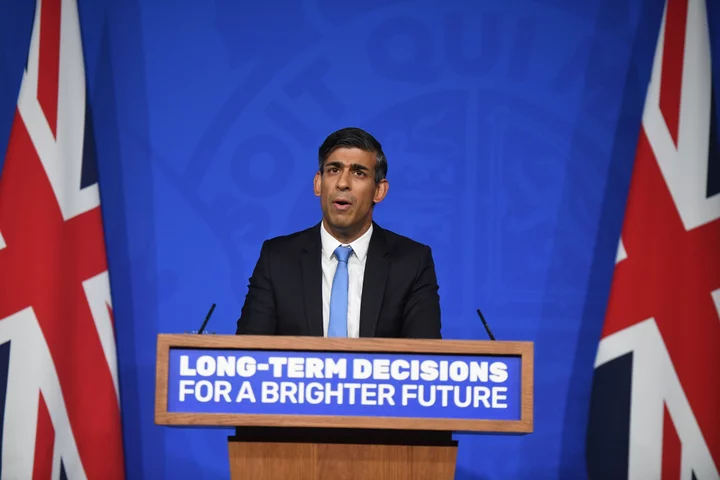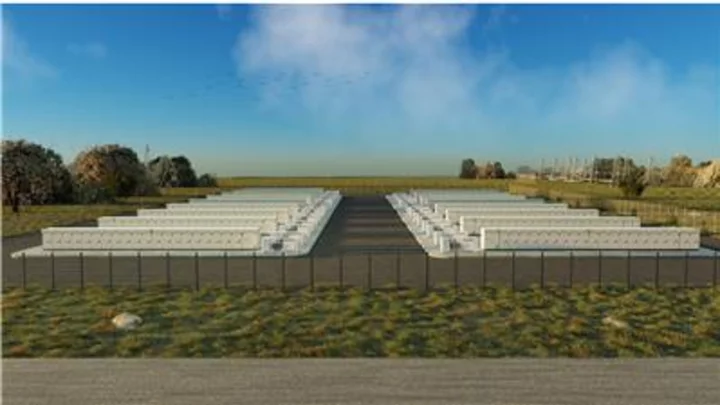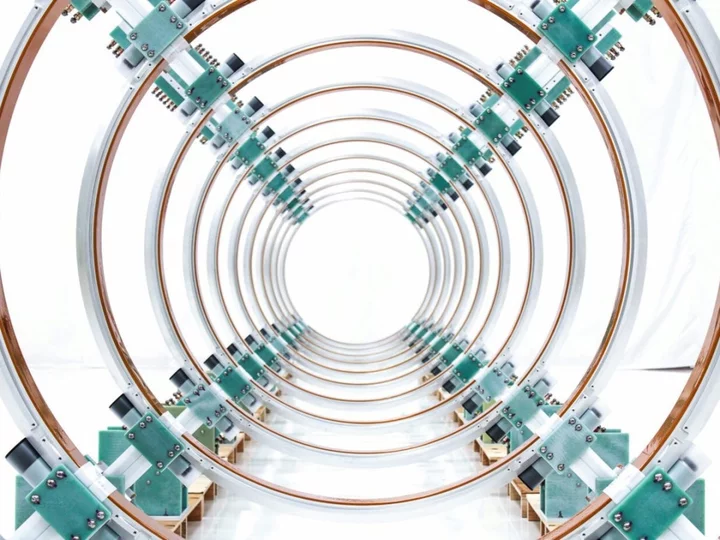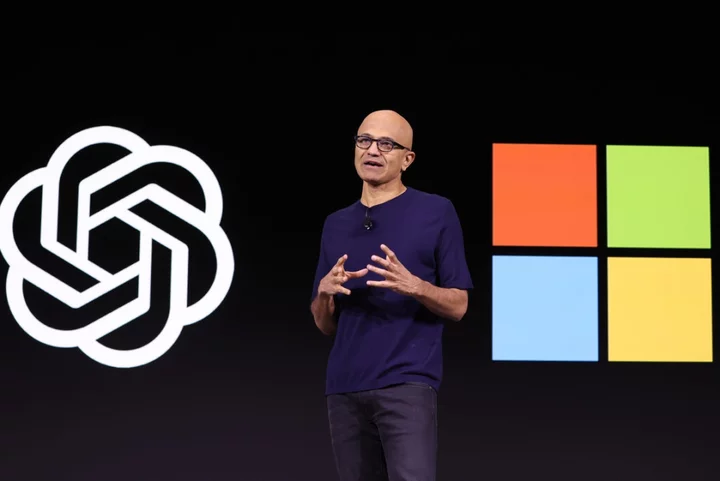Prime Minister Rishi Sunak diluted key parts of his UK government’s green agenda, including pushing back a ban on the sale of new petrol and diesel cars by five years to 2035, as he set out what he called a “new approach” to tackling climate change.
“At least for now it should be you, the consumer, who makes that choice, not the government forcing you to do it it,” Sunak said in a speech in Downing Street Wednesday. He said he expects the vast majority of vehicles sold in the UK to be electric by 2030 without government intervention, due to falling costs.
Sunak said he is still committed to reaching net zero by 2050 but said the UK should do it in a “more proportionate way” that makes allowances for voters facing cost-of-living pressure.
The statement was brought forward after his planned U-turn was leaked to the BBC, triggering a backlash from some members of his Conservative Party over fears it would damage Britain’s international standing and dissuade businesses from investing. The shift also caught Cabinet members by surprise, people familiar with the matter said, as Sunak set out his plans in a call Wednesday.
Read More: Sunak Was Advised Diluting Green Policies Would Risk Net Zero
Foreign Secretary James Cleverly — who is representing the UK at the United Nations General Assembly in New York where the group’s climate ambition summit is on the agenda — dialed in to the meeting. He told the ministers the UK would still be ahead of other countries on net zero, just not by as much, according to a person familiar with the discussion.
But some of Sunak’s senior ministerial team are worried about the lack of clarity for business, two people familiar with their thinking told Bloomberg.
“Our business needs three things from the UK government: ambition, commitment and consistency,” Lisa Brankin, chair of Ford UK, said before Sunak’s speech. “A relaxation of 2030 would undermine all three.”
Stellantis, which owns brands including Vauxhall, Fiat, Citroen, and Peugeot, said it is committed to achieving “100% zero emission new car and van sales in the UK and Europe by 2030” but that government “clarity” is needed.
Sunak said he wants to ease the financial burden of net zero on Britons. He announced 50% increase in funding to install heat pumps in homes, with gas boilers in existing homes will be phased-out from 2035. They will only need to be replaced once the boiler breaks, he said.
“It cannot be right for Westminster to impose such significant costs on working people,” Sunak said. “If we continue down this path, we risk losing the consent of the British people.”
Critics said the changes would have no immediate impact on struggling Britons.
“All those dates are quite far away from the present and this won’t help anyone spending money now,” said Adam Bell, director of policy at consultancy Stonehaven and a former senior civil servant working on energy.. “It’s almost certainly going to be a mistake driven by politics over substance.”
Watering down green commitments risks widening Conservative divisions just as the party prepares for its annual conference in Manchester next month. Embracing a green agenda has long been a key Tory policy and helped former Prime Minister Boris Johnson stabilize Britain’s global reputation in the wake of his successful campaign to leave the European Union.
“The green industrial revolution is already generating huge numbers of high quality jobs and helping to drive growth and level up our country,” Johnson said in a statement. “It is crucial that we give those businesses confidence that government is still committed to net zero and can see the way ahead.”
Still, Sunak’s change of heart was welcomed by some Conservatives. Home Secretary Suella Braverman, on the political right of the party, told Times Radio the changes are good for voters suffering the effects of inflation. “We are not going to save the planet by bankrupting British people,” she said.
The opposition Labour Party accused the Tories of creating chaos. “The Conservatives might be happy to kick the legs out from underneath the car industry, but Labour would back the sector all the way,” the party’s transport spokeswoman Lou Haigh said on X, formerly known as Twitter.
(Updates with Sunak comments, details throughout)









